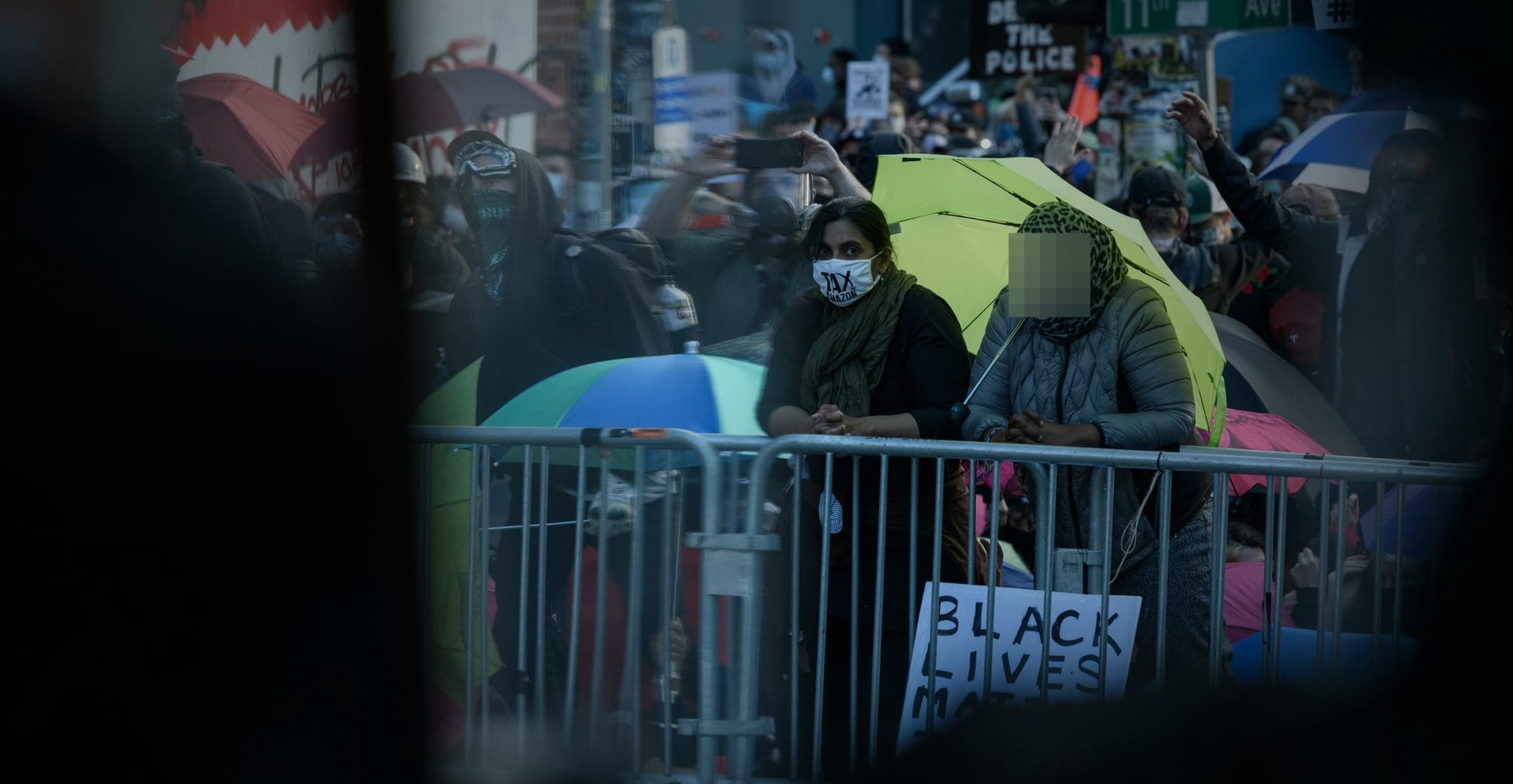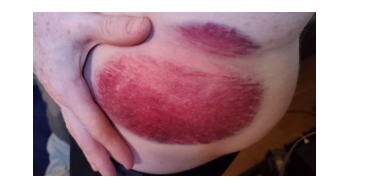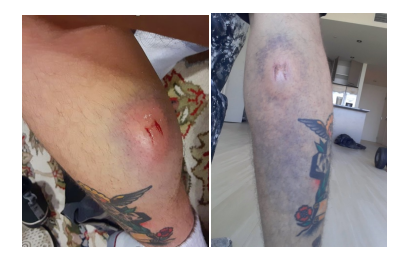Bruce Harrell’s bill would eliminate limits on the use of lethal chemical agents, shotgun rounds on protesters, finalize SPD’s quest to neuter city law

Seattle Mayor Bruce Harrell has transmitted legislation to Seattle City Council that would eliminate existing codified limits on lethal chemical agents and extremely dangerous impact projectiles, allowing the Seattle Police Department (SPD) to draft new weapons policies unconstrained by city law.
On Tuesday December 10, Seattle City Council’s public safety committee, chaired by Robert Kettle, will review the legislation. Kettle has also sponsored the bill authored by the Mayor’s office.
Harrell’s proposed Council Bill CB 120916 would enshrine SPD’s praxis of circumventing city law for the past four years, operating in an extralegal ether facilitated by coordinated intervention from the US Department of Justice (DOJ).
“It wasn’t pretty.”
In early June of 2020, council members and the public were confronted with the bleak reality of SPD’s pattern of violence against Black Lives Matter protesters. It was a break glass moment.
At the time, the City Council passed legislation that effectively roadblocked SPD’s weapons procurement. Behind the scenes, SPD and the City Attorney’s Office began communicating with Trump’s DOJ about blocking the law from taking effect.
“If the Council [legislation] isn’t enjoined – we will have to pay to dispose of anything we buy. Becca – when do we think we will know if it might have an injunction?” wrote former SPD executive Chris Fisher in an email to SPD’s top lawyer Rebecca (Becca) Boatright. Fisher was referencing the rapid procurement of blast grenades and other munitions that SPD was gobbling up wherever they could be found.
In one email sent to the DOJ, Assistant City Attorney Kerela Cowart itemized numerous consent decree paragraphs, identifying how none of them legally prevented city law from taking effect. The only pathway Cowart identified to block the legislation was through court intervention. Coward then sent a draft federal court filing to the DOJ, writing that the city was planning on not following city law.
“Good news. [DOJ Attorney] Christina [Fogg] just emailed me at 11:30. DOJ is going to take a position on the CCW [crowd control weapons] Ordinance that allows us to Not implement it,” Cowart texted to Boatright.
A few minutes later, Cowart texted again, “I was wrong. DOJ's position is not strong enough for CAO [City Attorney’s Office] to take position that Ordinance does not have to be implemented. DOJ is not opposing ordinance itself, just making procedural point.”
While in private the DOJ was not “opposing” the ordinance, in public the DOJ took a 180 degree turn after Federal Judge James Robart declined to intervene to block the law on SPD’s ask alone.
A new hasty plan began to shape out. The DOJ notified the City of their intent to file a temporary restraining order (TRO) to stop City Council’s legislation from taking effect, citing a violation of the exact paragraphs that Cowart had previously identified as “not applying to our current situation.”
In their email, the DOJ called out “Chief Best’s directive” to limit weapons used by the department as a violation of Seattle’s Consent Decree.
Boatright replied to other top city officials, writing, “Here is my concern: the way this is framed, it will land that the Chief (and/or the Mayor) violated the Consent Decree by issuing the directive that she was duty-bound to issue in order to be in compliance with the City Council ordinance. I get that given the judge's decision not to intervene at this point DOJ needs some action to render a TRO ripe, but really concerned that this not land on Chief Best, who is between a rock and a hard place.” Boatright continued, “This is a creation of Council action alone and exactly what the Chief and Mayor have already called out.”
Best appeared to be pissed at the notion she was being framed as the fall-guy, responsible for violating the consent decree and justifying DOJ intervention. She called the DOJ’s Deputy Chief Tim Mygatt, later texting Boatright that her call with Mygatt “wasn’t pretty.”
In a memo to then City Attorney Pete Holmes, Best wrote that City Council was placing SPD officers in a “Gordian knot of either violating city law, backsliding on their commitments under the Consent Decree, or simply abandoning legitimate law enforcement objectives.” Best continued, “it is Council action and budget narrative alone over the past few weeks that demonstrates how quickly reforms and progress lauded only weeks ago can be undone by legislation driven by politics and raw emotion.”
It appeared that SPD wanted the DOJ’s crosshairs squarely leveled at City Council, creating a boogie-man that former SPD Chief Carmen Best and countless others would cite as her reason for retiring from the department. However, HardPressed can reveal that Chief Best appeared to discuss resigning prior to all this drama. A text message sent by SPD’s then Director of Strategic Communications Amy Clancy on June 12, 2020 shows that Best had talked to her. “It was Chief who came in. She wanted to see email again. But said - why would I RESIGN?” Clancy was texting another SPD communications staffer on her personal cell phone. Their conversation ended after this text.
Best later resigned in early August 2020.

On July 24 2020, Federal Judge James Robart approved the DOJ’s motion for a TRO, effectively blocking Seattle city council’s legislation and green lighting SPD’s use of dangerous munitions and chemical agents.
The SPD, in partnership with the City Attorney’s office, had raised hell and clawed back their legal ability to use dangerous chemical munitions and projectiles.
The day after Robart’s order granting a TRO, SPD would carry out its most violent day possibly in the entire history of the department’s contemporary force reporting, under the incident command of now former Chief Adrian Diaz. Over 300 uses of force were internally reported within a few hours as protesters were hit with blast grenades, projectile rounds and dusted with pepper spray across Seattle’s Capitol Hill neighborhood. Multiple journalists were victims of SPD violence.
With City Council’s 2020 legislation blocked, SPD let loose, injuring countless people, and laying the groundwork for a $10 million settlement with numerous protesters who were injured by the department.
Harrell’s proposed CB 120916 would repeal the City Council’s “crowd control weapons” legislation passed in 2020 and an update to the legislation passed in 2021, removing all limits on SPD’s weapons use currently codified into city law.



An array of injuries caused by weapons used by the Seattle Police Department in 2020. Source: https://www.stritmatter.com/results/black-lives-matter-injured-protesters-lawsuit/legal-documents/
Tuesday City Council Briefing
On Tuesday, December 10 at 9:30am, Seattle City Council’s public safety committee will hear a briefing on Harrell’s proposed new legislation.
Mayor Harrell’s newest Director of Public Safety, Natalie Walton-Anderson and Deputy Mayor Tim Burgess will present to council members. SPD previously coordinated with Burgess on Op-Eds he authored in 2020 while he was not a government employee.
They will be joined by SPD’s Chief Operating Officer Brian Maxey, who previously gave statements to City Council that were not true, and sat by as another officer gave false statements to City Council earlier this year.
Maxey also previously worked with Boatright to “revise” a contracted report authored by an external use of force expert, Steve Ijames, in 2016. Boatright deleted language calling the use of blast grenades “excessive and dangerous.” Boatright also deleted language with a recommendation that SPD “stop using officers from outside agencies in direct crowd management assignments.”
Seattle’s Inspector General, Lisa Judge, is also listed as a presenter on Tuesday. Her office previously met with Maxey, agreeing to shut down an audit into SPD’s use of external police departments. A report by the Urbanist revealed that these external departments used lethal chemical agents, such as hexachloroethane (HC) and other dangerous weapons such as shotgun beanbag rounds, rubber pellet rounds and rubber pellet filled blast grenades that are banned under SPD's own policy.
A City Council central staff memo circulated to council members prior to Tuesday’s briefing also contains glaring omissions. Ijames’ previous report for SPD in 2016, highlighted the fact that Seattle’s Office of Police Accountability (OPA) recommended external police department officers responding to Seattle be “required to comply with all SPD policies with regard to the use and reporting of force.”
Harrell’s proposed bill would repeal existing city law that bans external police departments operating in Seattle from using “crowd control weapons.” The central staff memo highlights that, today, SPD would like to allow external police departments to be unrestricted by SPD's own weapons policies.
Central staff’s memo also omits the fact that the OPA made direct recommendations to “ban the use of blast balls in crowd control unless there is compelling evidence that the tool can be used in a safe, non-indiscriminate manner.”
In December 2023, Federal Court Monitor Antonio Oftelie argued in a memo sent to the DOJ that a prohibition on blast grenades “leaves officers with no practical alternative to move crowds short of CS gas.” This assertion is not true. Many police departments worldwide, such as the Royal Canadian Mounted Police, don’t use Blast Balls or “Hand Thrown OC, nor FN303 rounds,” according to an email sent by an RCMP Sergeant to SPD.
Countless people have suffered life altering injuries as a result of SPD’s use of blast grenades, including one woman who "died three times," after she was hit in the chest by a blast grenade in 2020.
The officer who threw the grenade told OPA investigators at the time that he “did not remember where he threw the blast ball or specifically why. He further did not notice at the time that it struck anyone.”
Culminating SPD’s quest to nullify city law
Eventually, the DOJ’s initial “temporary” restraining order, which blocked Seattle’s 2020 “crowd control weapons” ordinance from taking effect, was converted to an injunction through a joint motion filed by the City and the DOJ. This injunction appears to continue to be in effect today, forcing SPD’s weapons policy to be reviewed by the Federal Court Monitor, Antonio Oftelie, prior to implementation.
Oftelie was previously nominated to his post by SPD executives, and is currently pushing the legal requirements of the consent decree himself by accepting payments through a DOJ program. Prior to becoming SPD’s Court Monitor, Oftelie coordinated with SPD executives, including Fisher and Boatright to publish an Op-Ed under his name. Fisher initially drafted Oftelie's Op-Ed after approaching Oftelie with a proposition to be a public facing SPD surrogate.

With Trump 2.0 returning to the White House, more First Amendment activity in Seattle is all but guaranteed. Passing Harrell’s CB 120916 would eliminate any codified limits on SPD’s weapons use, allowing SPD to write their own policies unrestrained by city law, fulfilling SPD’s intensive quest to neuter city ordinance that began in 2020.
Harrell’s proposed council bill highlights Washington state law (RCW 10.116.030) that places limits on the use of CS agent also known colloquially as “tear gas.” However, Washington state law does not codify any limits on OC agent aerosol grenades, which SPD has used frequently and interchangeably with CS. Washington state law also does not limit the use of hexachloroethane (HC) grenades, a known lethal chemical agent that was used on Seattlites in 2020. Harrell’s proposed bill would repeal existing city law which bans the use of these chemicals in addition to other weapons including shotgun beanbag rounds, rubber pellet rounds and rubber pellet filled blast grenades by external police departments in Seattle.
Requests for comment have been made to the Mayor’s Office, City Council and City Attorney’s Office. This story will be updated with a note here incorporating any responses.

